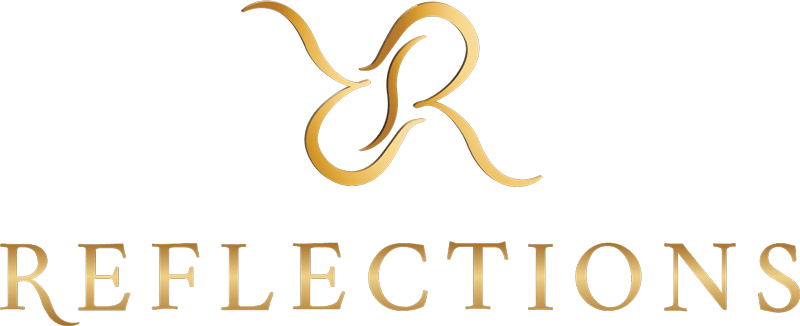It’s incredible that 75% of people who battle addiction go on to have sober, fulfilling lives.
Embarking on the journey to break free from the chains of addiction is a challenging yet transformative experience. Each path to recovery is personal and needs a multifaceted approach.
How can people take on this challenge with as many tools as possible? Read on for our greatest tricks on how to stop an addiction.
Acknowledge the Problem
The first and perhaps most crucial step in breaking your addiction is acknowledging that there’s a problem. Acceptance opens the door to change, which empowers you to confront the reality of your situation. It may be difficult, but admitting the presence of an addiction is fundamental to the recovery process.
Understanding the gravity of the situation and acknowledging that change is necessary are vital aspects of this step. It involves recognizing the impact of addiction on your life and those around you. Acceptance lays the groundwork for the subsequent steps in your journey toward recovery.
Seek Support from Loved Ones
Overcoming addiction isn’t a solo journey; it demands a network of support. Be vulnerable enough to lean on loved ones who can offer emotional support, empathy, and encouragement. Sharing your struggles with those you trust creates a support system that plays a pivotal role in your recovery.
A recovering addict is more likely to succeed with a strong support system in place. These people can be your pillars of strength during challenging times. Their empathy and encouragement can be instrumental in helping you stay clean on this hard path.
Communicate in an open way with them about your goals and challenges to foster an environment of trust and understanding.
Professional Guidance and Counseling
Consider seeking professional help from rehab with addiction specialists or therapists who specialize in addiction recovery. These professionals provide the following:
- Personalized guidance
- Counseling
- Strategies tailored to your specific situation
- A safe and confidential space to uncover the roots that contribute to your addiction
- Effective coping mechanisms
Therapy sessions are designed to address emotional and psychological aspects to equip you with the tools needed to navigate the complexities of recovery. Professionals can offer evidence-based interventions and support that enhance your chances of success a great deal.
Set Realistic Goals
Breaking your addiction is all about setting achievable and realistic goals. Create a detailed roadmap for your recovery, and break it down into smaller, manageable steps. Celebrate each recovery milestone, no matter how small, as it signifies progress.
Establishing realistic goals helps build confidence and motivation to continue on the path to recovery. Setting goals involves a thoughtful and systematic approach. Break down your overarching objective into smaller, more manageable tasks.
This approach makes it possible to track your progress. It provides a sense of accomplishment as you achieve each milestone. Reassess and tweak your goals on a regular basis to ensure they remain realistic and relevant to your evolving recovery journey.
Develop Healthy Habits
Fostering healthy habits is a cornerstone of addiction recovery. The incorporation of positive lifestyle changes can create a more supportive environment for your journey.
Replace unhealthy habits with positive ones to support your recovery. Focus on activities that are wonderful for your physical and mental wellness. They should contribute to the following:
- Regular exercise
- Proper nutrition
- Sufficient sleep
These healthy habits not only contribute to your general wellness but also help occupy your time and redirect your focus away from addictive behaviors. Prioritize self-care, joy, and fulfillment to boost your quality of life while you heal.
Identify Triggers
Understanding the triggers that contribute to your addictive tendencies is crucial for learning how to break an addiction. Recognize the following things that prompt the desire to engage in addictive behavior:
- Situations
- Emotions
- Environments
Once identified, work on developing coping mechanisms to navigate these triggers without resorting to your addictive habits. Identifying triggers involves self-awareness and introspection. Keep a journal to track situations or emotions that precede cravings.
This process allows you to anticipate challenges and develop proactive strategies to reduce their impact. Recognizing and managing triggers are essential skills that contribute so much to long-term recovery.
Create a Supportive Environment
Modify your environment to support your recovery efforts. Remove any substances or items that may tempt you to relapse. Surround yourself with positive influences and avoid places that may trigger cravings.
A supportive environment enhances your chances of breaking your addiction and maintaining recovery. Creating a supportive environment involves making intentional changes to your living space and social circles.
Get rid of things that are linked to your addictive past. Only be around the ones who’ll be there for you while you heal. A positive environment acts as a protective shield that reduces the likelihood of relapse and reinforces your commitment to change.
Educate Yourself
Knowledge is a powerful tool in addiction recovery. Educate yourself about the following:
- The nature of addiction
- Its impact on the brain and body
- The available addiction recovery options
Understanding the science behind addiction can clear things up and empower you. You can approach decisions in a more rational way to better navigate the challenges of recovery.
Educating yourself involves staying informed about the following:
- The latest research
- Treatment modalities
- Success stories in addiction recovery
You can go to addiction workshops, read reputable sources, and stay connected with addiction professionals. An informed approach makes it easier to collaborate with experts on your recovery journey.
Join a Support Group
Connecting with others who are on a similar recovery journey can be invaluable. Consider joining a support group or going to meetings like Alcoholics Anonymous or Narcotics Anonymous. Sharing stories with others who have faced similar addiction struggles can foster a sense of community.
It can even give you extra accountability on your path to healing. You can feel understood on a deep level. In these spaces, you can share your successes and challenges without judgment while gaining insights from others who have walked a similar path.
The collective support fosters a sense of recovery camaraderie. It will reduce feelings of isolation during your transformation.
Embrace Therapy Modalities
Explore different therapy modalities that align with your needs and preferences. Here are a few therapy examples:
- Cognitive-behavioral therapy (CBT)
- Motivational enhancement therapy (MET)
- Dialectical behavior therapy (DBT)
Each therapy approach offers unique tools and techniques to help you understand and change your addictive behaviors. Embracing therapy involves an open-minded approach to various treatment modalities. Collaborate with your healthcare professional to determine the therapy that best suits your personal needs.
Be willing to experiment with different therapy approaches. Therapy modalities can complement one another and provide a holistic foundation for your healing journey.
Celebrate Progress and Forgive Setbacks
Recovery is a lifelong process filled with both successes and setbacks. Celebrate your achievements and progress, no matter how small, as they signify positive steps on your path to recovery. Use setbacks as opportunities for growth since you can learn from mistakes.
Celebrating progress involves acknowledging and appreciating your efforts along the way. Set aside time to reflect on your achievements to reinforce the positive changes you’ve made. Forgive yourself for any lapses and use them as valuable lessons.
Consider Medication-Assisted Treatment
In some cases, medication-assisted treatment (MAT) may be a helpful option. MAT is when you take medications alongside counseling and therapy to address the physiological aspects of addiction. Consult with a healthcare professional to see if this is an ideal approach for your addiction struggles.
Together, you can assess whether MAT aligns with your individual needs and recovery goals. Medications can play a supportive role in managing cravings and withdrawal symptoms. This could make your addiction treatment plan much more effective.
Practice Mindfulness and Meditation
Everyone should prioritize mindfulness and meditation in their everyday routine, but it’s even more important for recovering addicts. It helps people cultivate a heightened sense of self-awareness. These practices make it possible to do the following:
- Stay present in the moment
- Manage stress
- Gain better control over impulsive behaviors
- Maintain a calmer mind
- Keep you on the path of recovering
Consider joining mindfulness classes or using meditation apps to explore and deepen your practice.
Build a Relapse Prevention Plan
Create a complete relapse prevention plan to anticipate and address potential challenges. Identify the following:
- Specific triggers
- Warning signs
- Coping strategies
Having a thoughtful plan in place empowers you to respond in a proactive way to situations that might jeopardize your recovery, which reduces the risk of relapse. Share your relapse prevention plan with a trusted friend or family member for added accountability and support.
Engage in Meaningful Activities
It’s crucial to fill up your free time with things that bring joy, purpose, and fulfillment. Engaging in hobbies, volunteering, or pursuing personal interests helps to replace the void left by addictive behaviors.
Meaningful activities provide a sense of accomplishment. They also contribute to a positive and fulfilling lifestyle. Consider exploring new interests and passions as part of your journey toward a more enriched life.
Foster Healthy Relationships
Nurture and strengthen your relationships with positive and supportive people. Surround yourself with people who encourage your recovery journey and understand the challenges you may face. Healthy relationships do the following:
- Provide emotional support
- Reduce feelings of isolation
- Contribute to a stable foundation for long-term recovery
Stay open with your loved ones when it comes to talking about your recovery goals. This will foster understanding and mutual support.
Establish Boundaries
Set clear boundaries to protect your wellness. Communicate your needs and limits to those around you in a clear way. Don’t be afraid to be assertive in maintaining these boundaries.
Establishing and enforcing healthy boundaries helps create a supportive environment that aligns with your recovery goals. Educate those close to you about the importance of these boundaries in maintaining your sobriety.
Celebrate the Small Milestones
Celebrate not only the major milestones but also the smaller achievements along your journey. Acknowledge your progress often and reward yourself for the positive steps you’ve taken.
Celebrating milestones reinforces your commitment to recovery and boosts your self-esteem. Consider creating a milestone calendar to visually track your achievements and reflect on your growth.
Stay Committed to Self-Improvement
Embrace a continuous journey of self-improvement and personal growth. Recovery isn’t only about abstaining from addictive behaviors but also about evolving into the best version of yourself. You should do the following:
- Pursue learning opportunities
- Set new goals
- Always strive for personal development
- Engage in self-reflection to identify areas of growth and commit to ongoing self-improvement
Emphasize Self-Compassion
Practice self-compassion throughout your recovery journey. Understand that setbacks are a natural part of the process, and treat yourself with kindness and understanding.
Cultivating self-compassion contributes to a positive mindset that fosters resilience in the face of challenges. Consider incorporating daily affirmations or self-compassion exercises to nurture a compassionate and supportive inner dialogue.
Explore Holistic Therapies
Holistic therapies provide alternative avenues for self-expression and self-discovery. Experiment with different holistic practices to discover what resonates most with you and enhances your whole sense of well-being.
Consider incorporating holistic therapies into your recovery plan. The following practices could complement traditional approaches:
- Acupuncture
- Yoga
- Art therapy
These things can make healing easier since they promote general wellness.
Attend Aftercare Programs
Take part in aftercare programs designed to support people in the post-rehabilitation phase. The following programs offer ongoing help:
- Support groups
- Counseling
- Continuing education
Attend aftercare sessions often to stay connected with a supportive community. You can also reinforce the skills learned during formal treatment.
Be Patient and Persistent
Recovery is a gradual process that doesn’t tend to be linear. You need to understand that meaningful change takes time.
You should do the following:
- Embrace the journey
- Learn from experiences
- Remain committed to the ongoing pursuit of a fulfilling, addiction-free life
Surround yourself with reminders of your recovery progress. This could include a journal documenting positive moments. You can reinforce your resilience and dedication to long-term recovery.
Now You Know How to Stop an Addiction
Learning how to stop an addiction is a courageous and transformative process. By following these recovery tricks, you can overcome the challenges of your addiction. Each step forward is a triumph on the road to a healthier and more fulfilling life.
Are you on the lookout for a Northern California rehab? Contact Living at Reflections to learn about our phenomenal facilities. We offer whole-person customized treatment plans to help everyone flourish.








